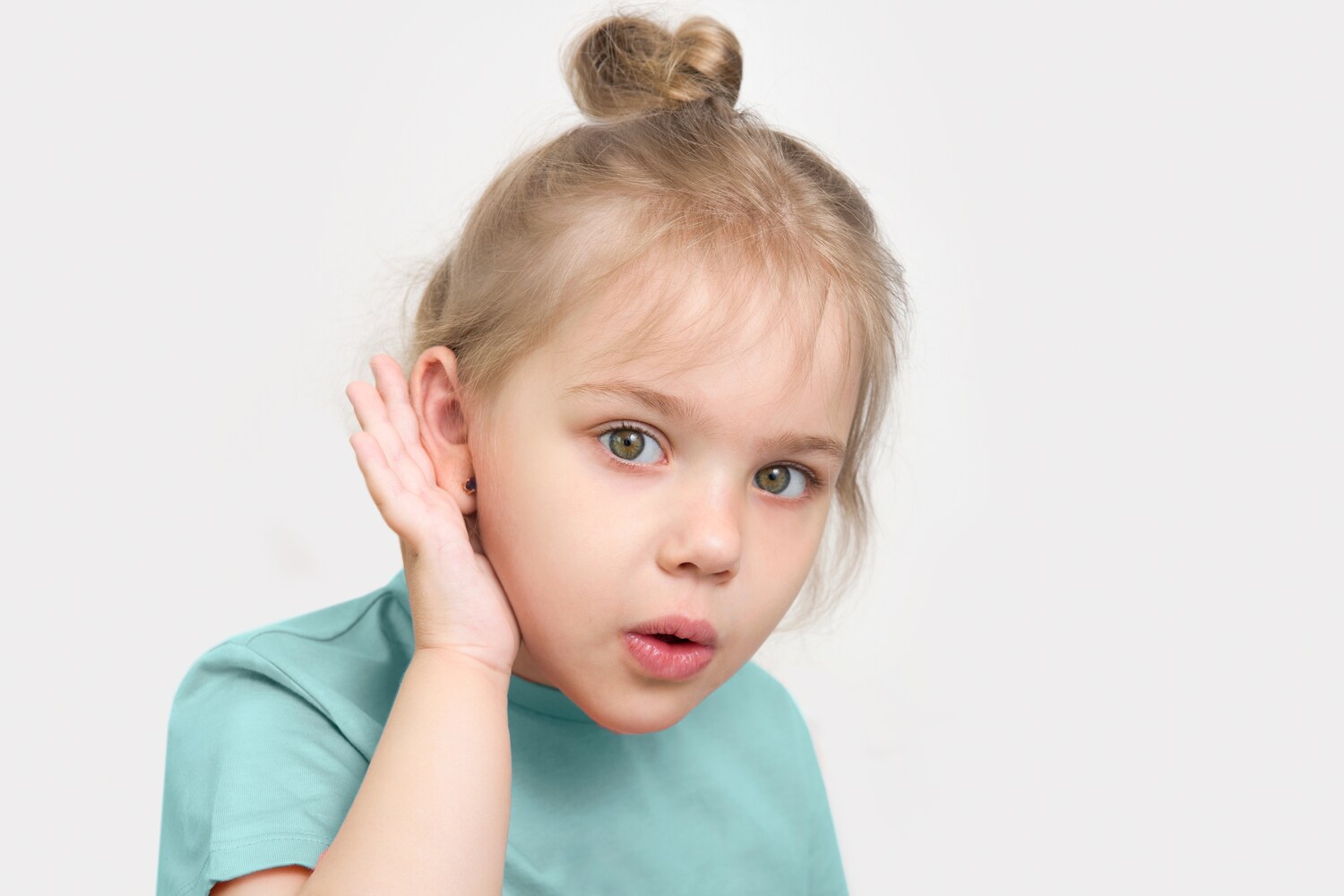
Hearing loss in toddlers can occur either at birth or develop later in the growing-up years. A toddler’s hearing ability can be affected in a lot of ways. Depending on the severity of hearing loss, it can be categorized as mild, moderate, or severe. In today’s world of advanced technology, this diagnosis is not the end as there are many customized treatment options available.
Hearing loss in a way affects a toddler’s communication skills by hampering speech. Early detection and intervention will definitely help a kid lead a normal life. It is important for caregivers to carefully monitor a toddler’s speech and language milestones. The earlier the toddler gets proper attention for it, the better will be their social milestones.
In This Article
- What is Hearing Loss in Toddlers?
- What Are The Causes of Childhood Hearing Loss?
- What Are The Types of Hearing Loss in Kids?
- What Are The Signs And Symptoms of Hearing Loss in a Toddler?
- Diagnosis of Childhood Hearing Loss
- What Are The Treatment Options For Toddlers With Hearing Loss?
- Tips to Prevent Hearing Loss in Toddlers
- FAQ’s
What is Hearing Loss in Toddlers?
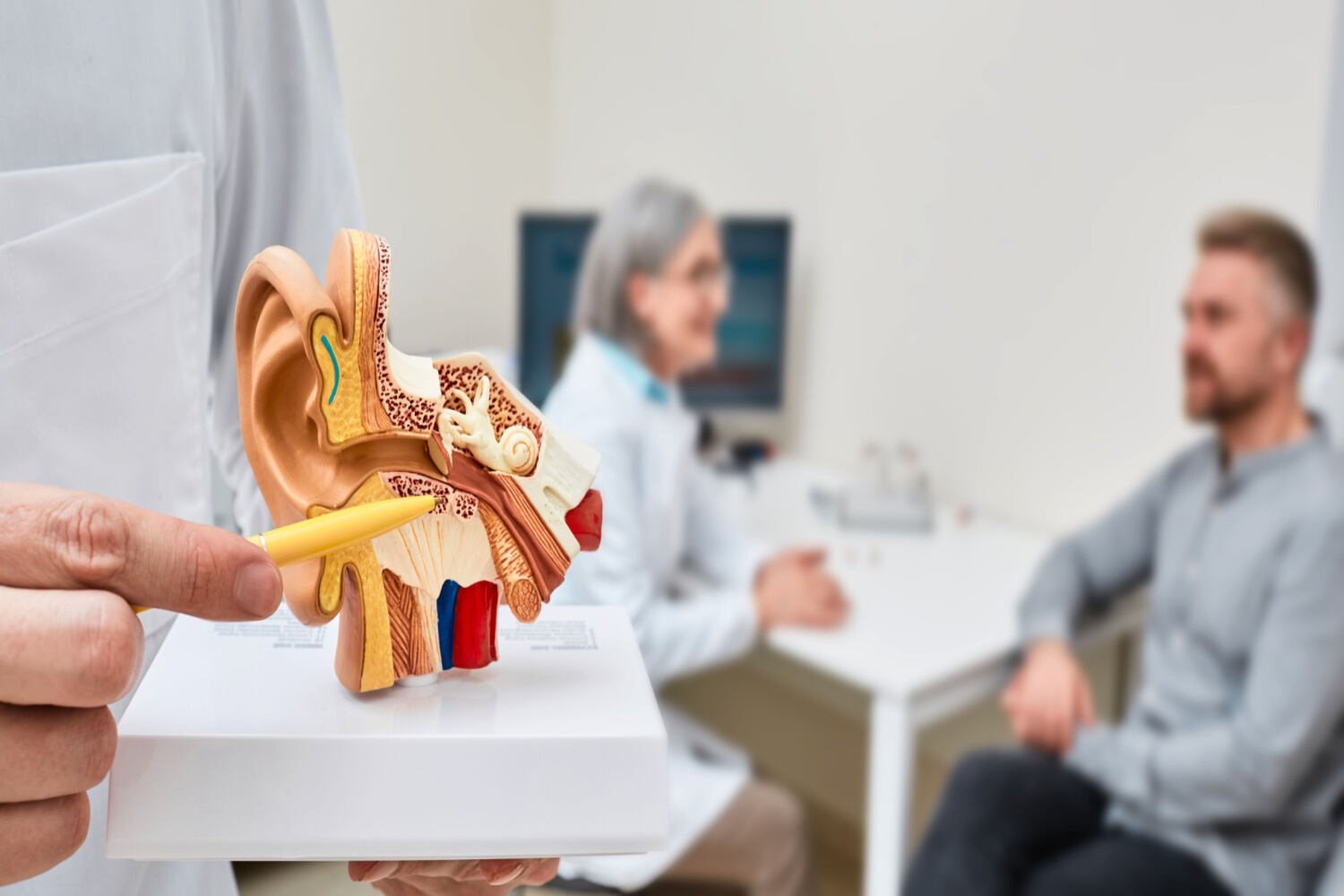
The human ear is composed of the outer ear, middle ear, and inner ear. Any abnormality in any of the above compartments can lead to complete deafness or a reduced sense of hearing. In a toddler, the concern is greater as it hampers their speech and language development. In short, the overall personality of a toddler is affected, as language plays a key role in development. Childhood deafness globally affects more than 62 million children (1).
What Are The Causes of Childhood Hearing Loss?
There are many etiological factors contributing to hearing impairment in kids. It can be due to congenital causes or acquired. The genetic causes are mostly present since birth. Some of the possible causes are for hearing loss in toddlers are-
1. Genetic Causes

Certain genetic syndromes present with loss of hearing. About one out of two cases of hearing loss in babies and toddlers are due to genetic causes. Babies with a genetic cause for their hearing loss might have a family history of hearing loss in one or more members. Some of the genetic syndromes associated with childhood hearing loss are-
- Down’s syndrome
- CHARGE syndrome
- Alport syndrome
- Waardenburg syndrome
- Goldenhar syndrome
2. Complications During Pregnancy
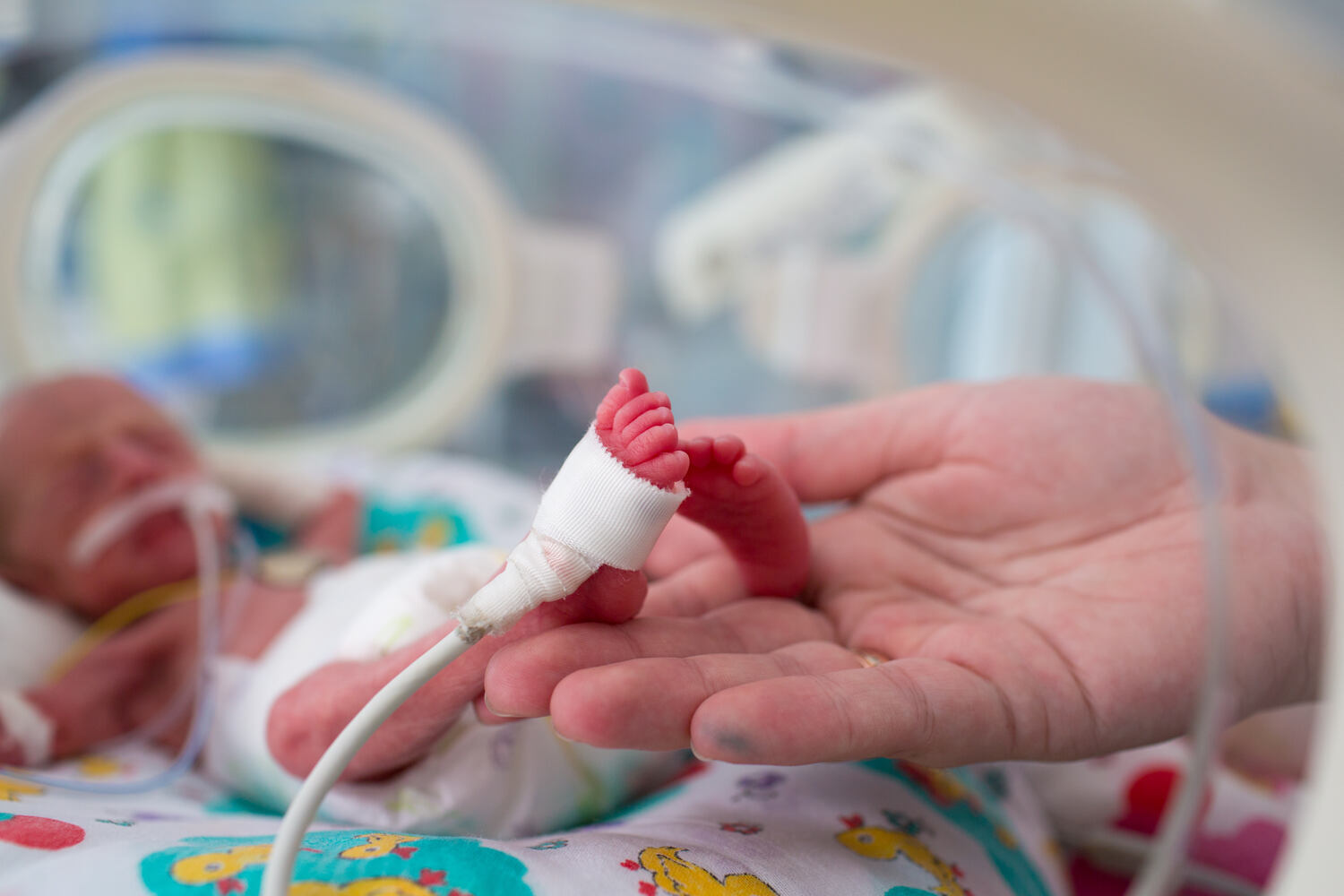
Prematurity, low birth weight pregnancies, few maternal infections, and neonatal jaundice can result in hearing loss in kids. Hypoxic events (insufficient oxygen supply to the baby’s brain) during pregnancy can also result in hearing issues.
3. Birth Injuries
Ears can be injured during normal delivery or even while using forceps or vacuum during labor.
4. Infections of The Ear
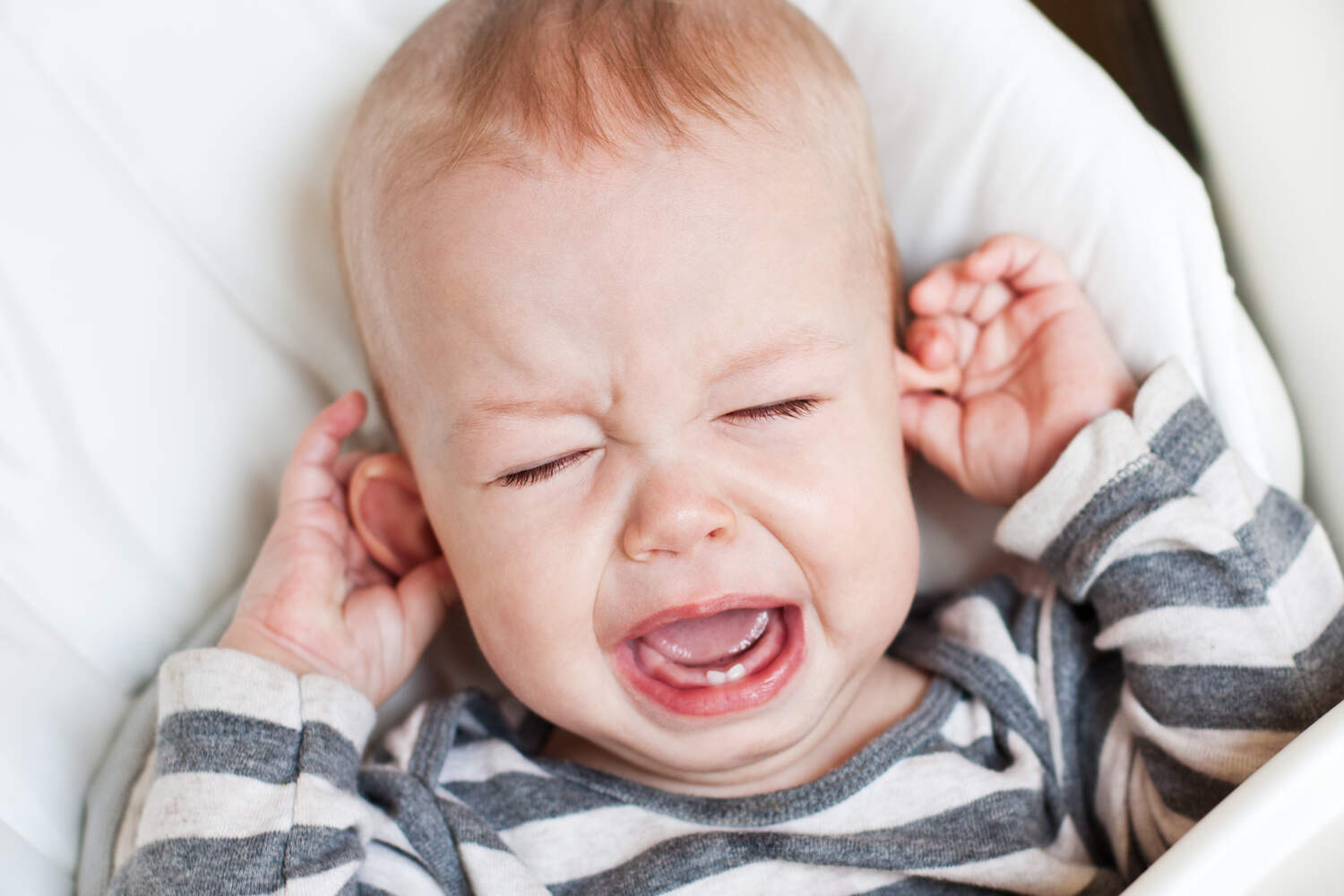
Otitis media, or the infection of the middle ear, presents with pain and discharge. It can lead to loss of hearing in toddlers. Infections like measles, mumps and rubella can also lead to some degree of hearing impairment in a few kids. Maternal infections during pregnancy can be passed on to the baby. Cytomegalovirus infection is one such infection.
5. Impacted Wax
This is one of the most common causes that can affect hearing in toddlers and kids.
6. Ototoxic Medications
Certain medications can affect the nerves responsible for hearing. Some of them include anti-cancer and anti-tubercular drugs.
7. Loud Noise
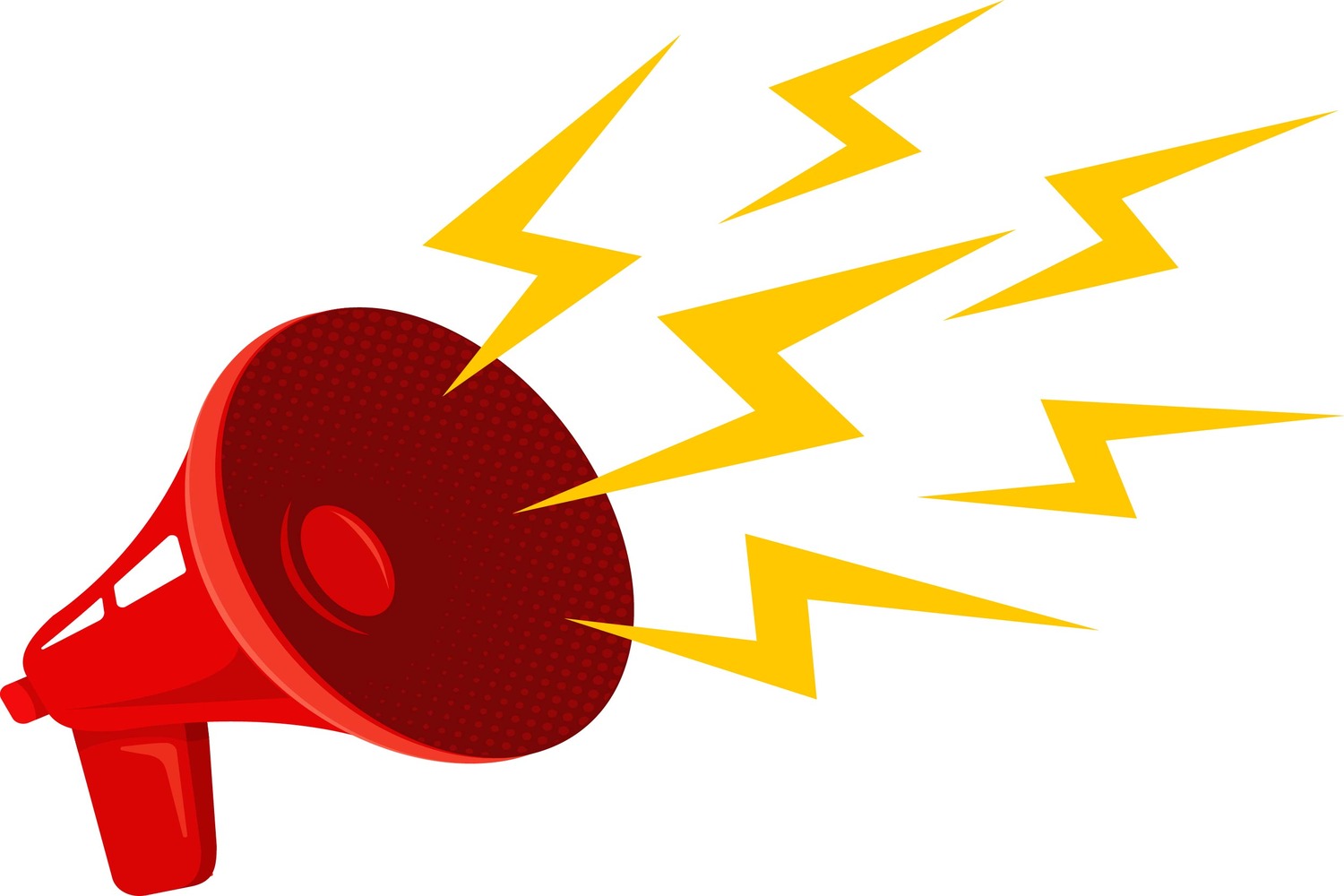
Exposure to high decibel sounds can be deafening to kids. Noise-induced hearing loss can painlessly and slowly cause permanent hearing loss (2).
8. Trauma
Injury to the ear structure, and even sometimes brain injury, can lead to decreased hearing or permanent loss.
9. Foreign Body
Sometimes the presence of a foreign body can lead to muffled or decreased reception of sound.
What Are The Types of Hearing Loss in Kids?
Depending on the part of the ear involved, hearing loss can be categorized into conductive, sensorineural, or mixed hearing loss.
1. Conductive Hearing Loss
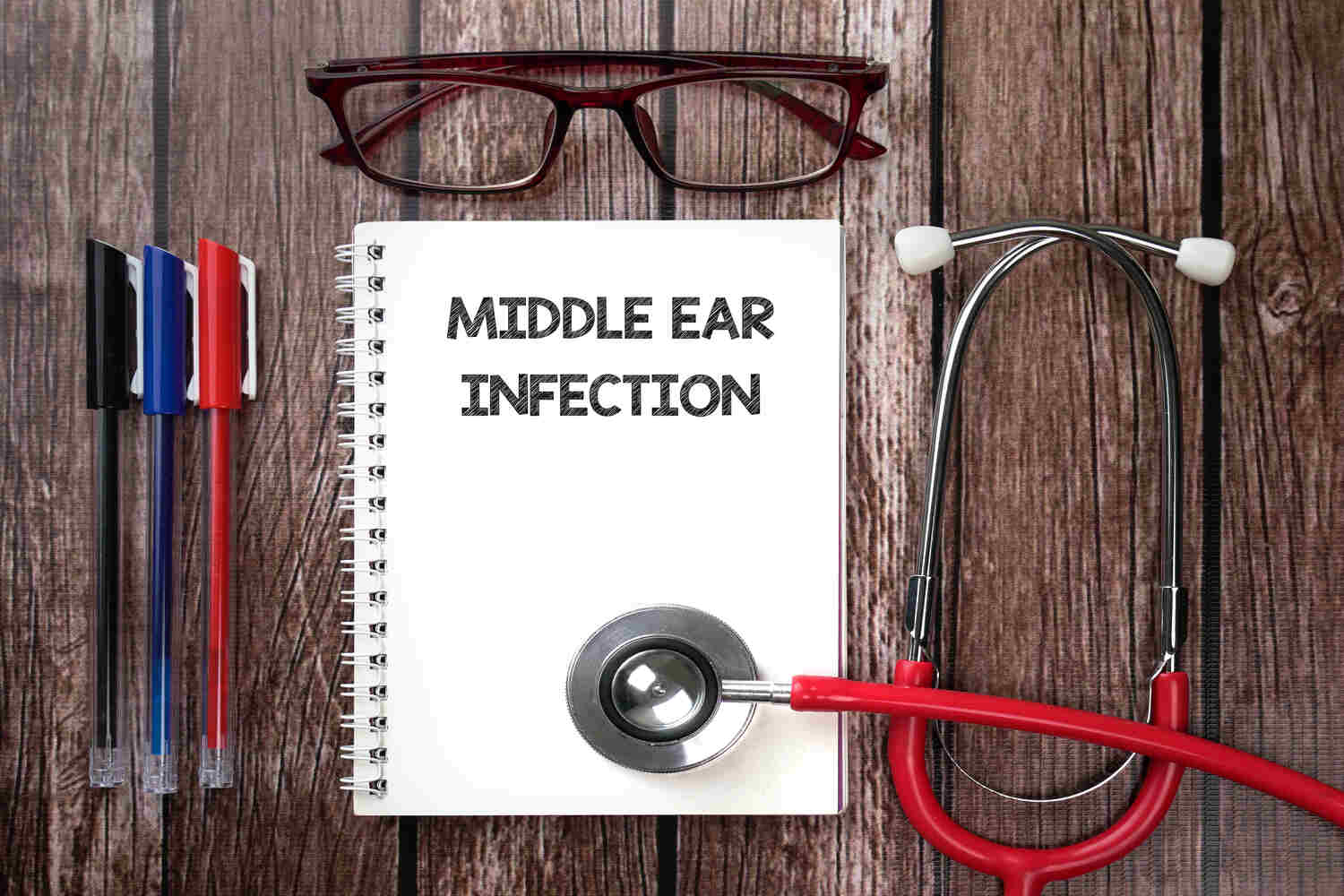
This arises due to issues in either the outer ear or the middle ear. Typically seen as a result of infection or fluid behind the eardrum. Impacted ear wax or any foreign body can be a cause as well. It usually responds well to medications or surgery and, hence, can be reversed most of the time.
2. Sensorineural Hearing Loss
This arises due to issues in the internal ear structures. Usually, the cochlea is affected. Congenital causes of hearing loss fall into this category.
3. Mixed Hearing Loss
Both conductive and sensorineural hearing loss are present in this.
What Are The Signs And Symptoms of Hearing Loss in a Toddler?
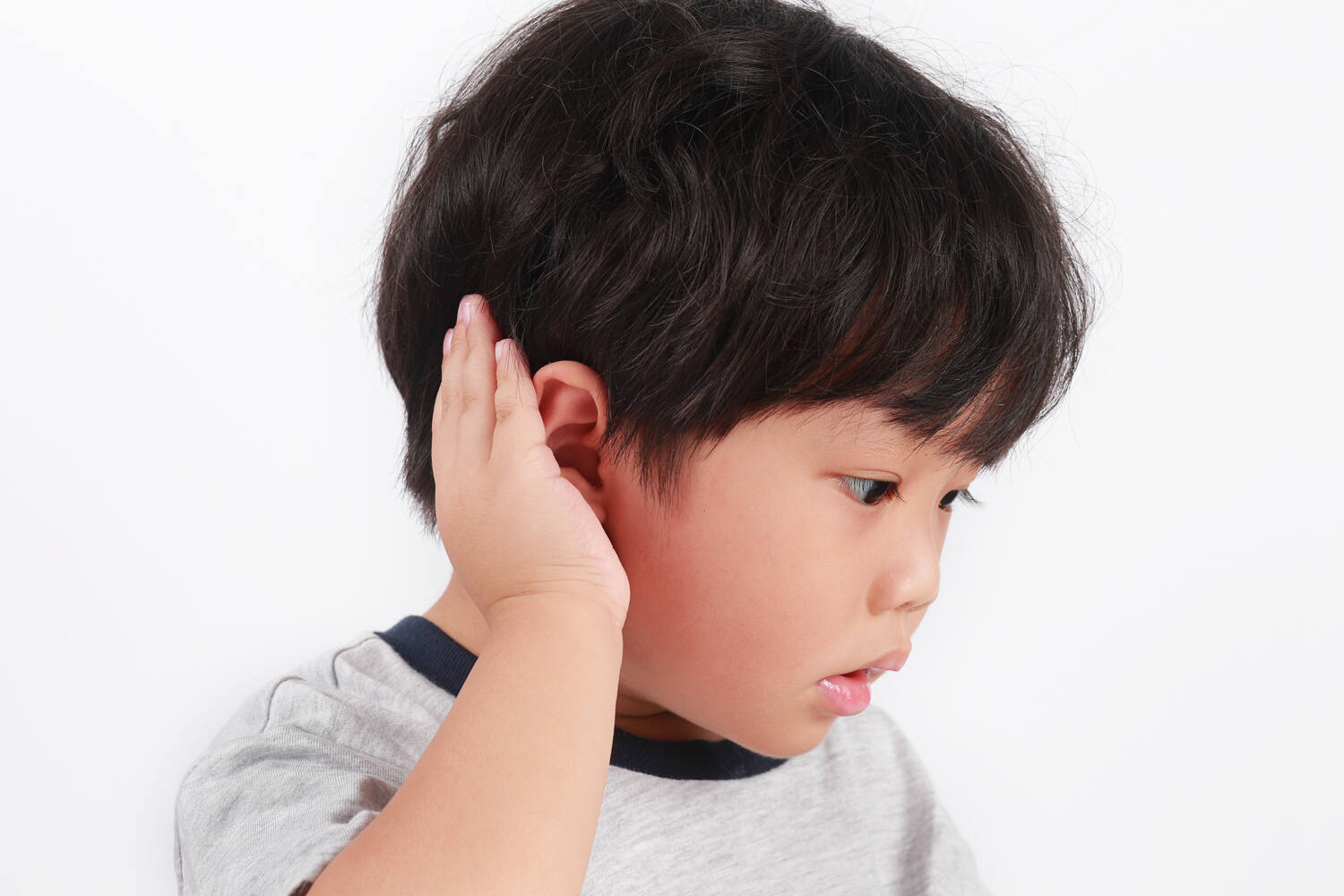
A toddler must be observed closely for such signs, as it can help in catching the clues. Some of the signs and symptoms of hearing loss in infants and toddlers include-
- Difficulty in following and understanding instructions
- Delay in speech
- Decreased or no reaction to sounds
- Doesn’t startle to loud sounds
- Difficulty in learning new activities
Diagnosis of Childhood Hearing Loss
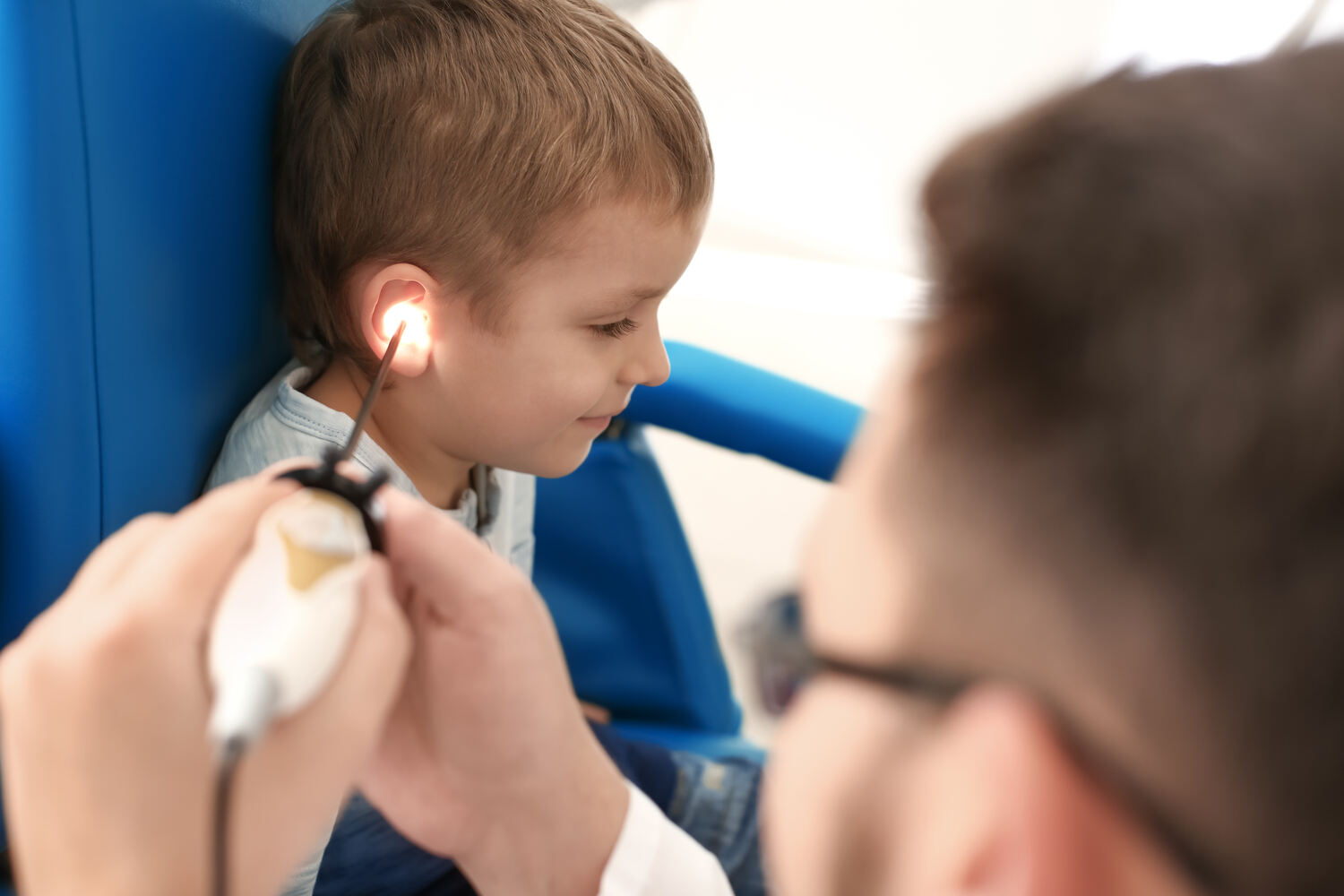
A newborn screening test for hearing is conducted before discharge from the hospital to screen babies. This is one of the most early diagnostic tests. If not done at the time of discharge, then it must be done before the baby turns 1 month old. If the baby doesn’t pass the test, then audiologic assessment must be done before the age of 3 months.
In older kids, speech is assessed along with their overall development. Clinical assessment of the ear as well as assessing the ear structures is done. The tympanic membrane, or the eardrum movement is tested in response to different frequencies of sound.
What Are The Treatment Options For Toddlers With Hearing Loss?
Early detection and intervention are quite helpful to prevent further issues with speech and language development. A team approach is required when a child is diagnosed with a hearing issue. A number of behavioral measures can be applied to avoid the need for any surgical intervention (3). The options treatment options for hearing loss in toddlers are-
Hearing Aids
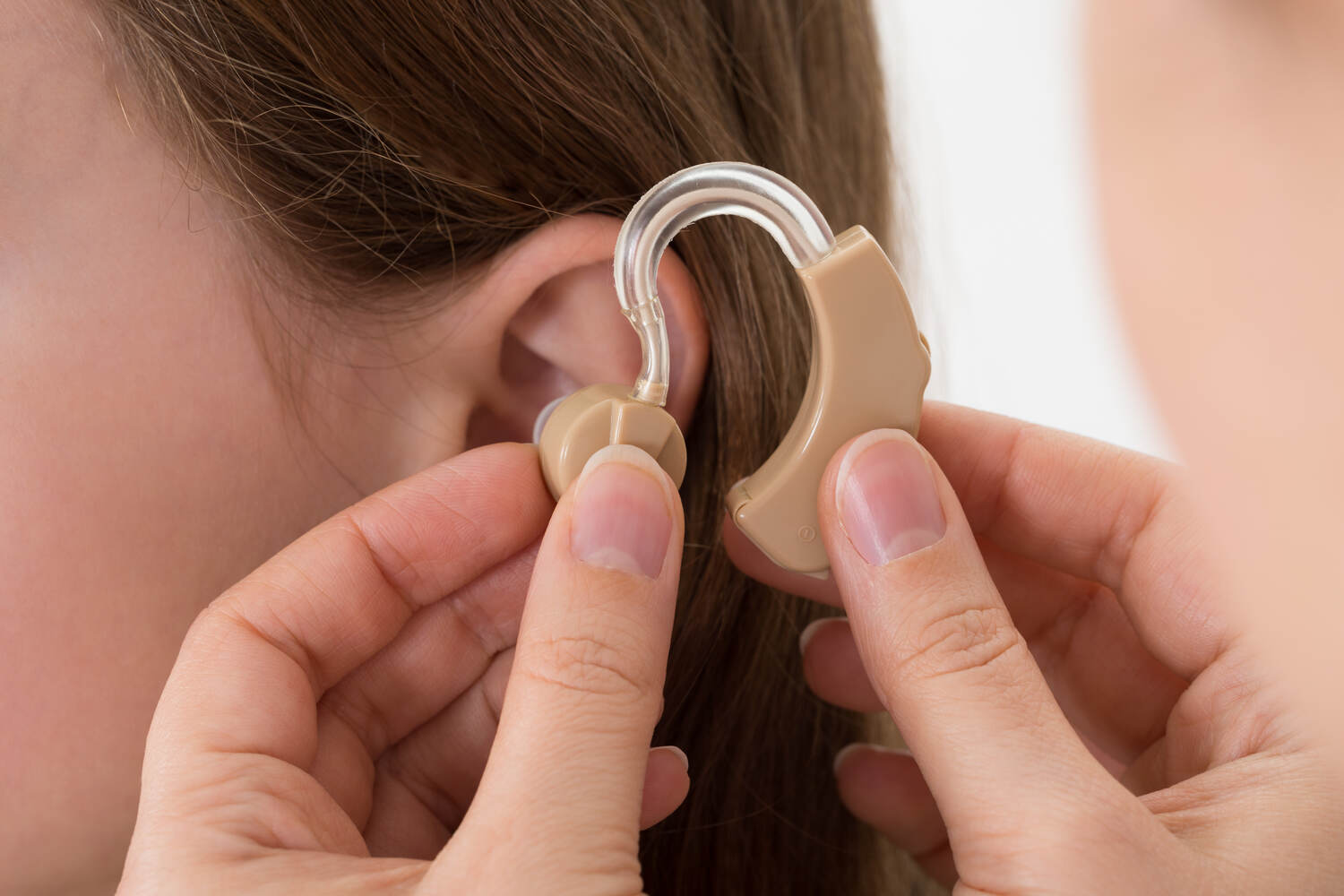
Electronic or battery-operated devices help to amplify sound to a normal hearing level. A microphone receives the sound and converts it into sound waves. It’s helpful for mostly conductive types of hearing loss. Early use in infants will help in early language development.
Cochlear Implants
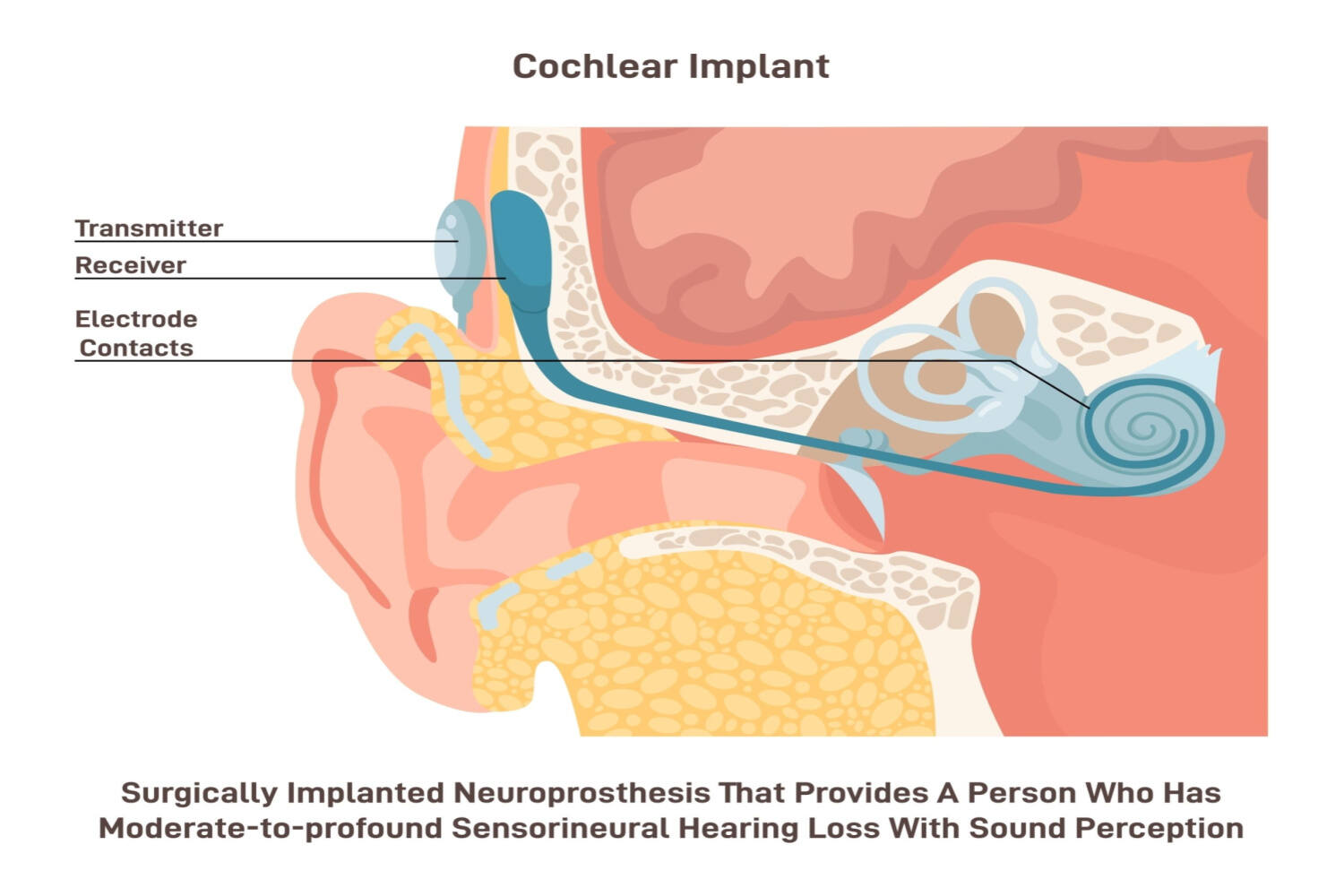
It is a surgically placed device that helps transmit electrical signals to the inner ear. Ideally, by the age of 1 year, it should be implanted in cases of congenital hearing loss.
Training For Sign Language

The toddler and the caregivers must get training in the use of visual sign language as an aid to communicating. Family members of toddlers with hearing loss must learn special skills (such as sign language) to help the toddler learn this language. Therapy sessions with a speech pathologist are also quite useful.
Tips to Prevent Hearing Loss in Toddlers

One can prevent the acquired causes of hearing loss in toddlers by following certain steps. Even a few congenital causes are preventable by taking care during pregnancy. The caregivers must be aware of some of the tips, like-
- Infections such as rubella, cytomegalovirus, measles, mumps, and meningitis can affect hearing ability. Timely immunizations and practicing good hygiene can help prevent them
- Careful use of ototoxic medicines in pregnant women and young kids
- Frequent and regular antenatal visits can be helpful in identifying pregnancy complications that can lead to hearing loss in kids
- Avoiding loud volumes can be helpful in preventing damage to the little ears. Play televisions and other devices at acceptable volumes
- Good ear hygiene and regular cleaning may help to prevent fluid and ear wax buildup on the ears, leading to infections
Hearing loss in toddlers can have a grave impact on their overall personality and may even compromise their future. It affects the speech, language, and social skills of the toddler. An early diagnosis can help to reverse it or treat it. If you are a parent or guardian who thinks that your toddler has hearing loss, then don’t hesitate to visit your pediatrician. The earlier, the better.
FAQ’s
1. Can You Prevent Mild Hearing Loss in Kids?
Yes, in most mild cases hearing loss is preventable by seeking early help and intervention.
2. Is Middle Ear Hearing Loss Curable?
Most of the cases affecting the middle ear are due to otitis media. This is easily curable by antibiotics or, in some cases, by surgery. Hearing aids can be helpful too.
References
- Childhood deafness poses problems in developing countries – [https://www.ncbi.nlm.nih.gov/pmc/articles/PMC549701/]
- Noise-Induced Hearing Loss in Children – [https://www.urmc.rochester.edu/encyclopedia/content.aspx?contenttypeid=85&contentid=p00458]
- Pediatric Hearing Loss – [https://www.ncbi.nlm.nih.gov/books/NBK538285/]

